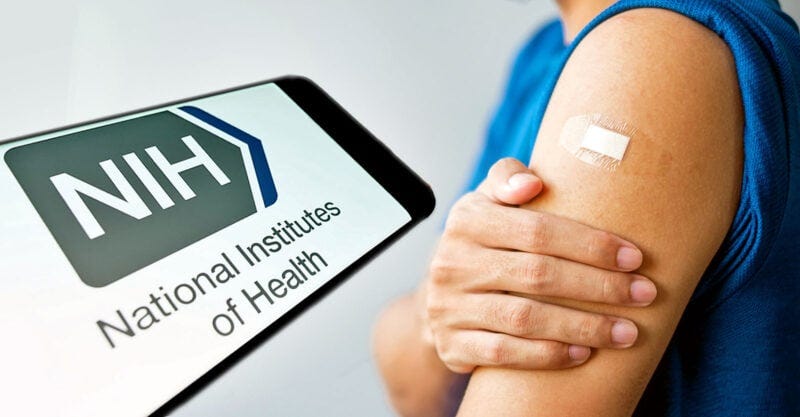In Surprise Reversal, NIH to Hand Over Communications Between Agency and People Injured by COVID Shots/ The Defender
Sometimes showing your legal teeth leads the USG to back down. NIH now promises to fulfill CHD's FOIA request
https://childrenshealthdefense.org/defender/nih-reversal-covid-vaccine-injury-chd-foia-lawsuit/
The National Institutes of Health on Wednesday withdrew its motion to dismiss a Freedom of Information lawsuit filed by Children’s Health Defense after the agency refused to turn over documents related to correspondence between NIH researchers and people who contacted the agency regarding their injuries from the COVID-19 vaccine.
The National Institutes of Health (NIH) this week withdrew its motion to dismiss a lawsuit involving Children’s Health Defense’s (CHD) Freedom of Information Act (FOIA) request for documents related to correspondence between NIH researchers and people who contacted the agency regarding their injuries from the COVID-19 vaccine.
CHD sued the NIH in April, alleging the agency violated the Freedom of Information Act by failing to deliver the requested documents nearly six months after the initial request and by withholding crucial information from the public.
NIH sought last month to have the lawsuit dismissed. But on Wednesday, the agency asked the court to allow it to withdraw its motion to dismiss the case, saying it “has determined that it will respond to Plaintiff’s FOIA request” and further requesting the court to extend its deadline for responding to the request and the legal complaint to August 4.
On Thursday, the judge granted NIH’s request.
The NIH’s about-face came after CHD filed an opposition to NIH’s motion to dismiss last week, which challenged the NIH’s claim that the FOIA request was “broad and vague” and that it did not “reasonably describe” the requested records.
CHD’s filing accused NIH of cherry-picking sections of the FOIA request in making its case for dismissal, and said the motion “ignores every fact that undercuts its arguments, as well as 25 pages of exhibits.”
Kim Mack Rosenberg, CHD acting general counsel, accused the NIH of “stonewalling” because the agency previously informed CHD it had adequate information to fulfill the request, but then never did so. Instead, it stopped responding to CHD’s communications and later in its court filings made “baseless claims” to try to get the case dismissed, Rosenberg said.
CHD’s opposition to NIH’s motion to dismiss argued that in fact, its FOIA request was quite specific. Through earlier back-and-forth communication with NIH, CHD had narrowed and specified its request and provided NIH with a list of 10 people whose communications should be searched and even provided a list of search terms to be used to locate the documents.
NIH responded that “since the filing of the motion to dismiss and after considering Plaintiff’s opposition,” the agency decided to fulfill the FOIA request rather than seeking to dismiss the lawsuit.
CHD’s lawsuit alleges that in early 2021, multiple people experiencing severe ongoing health problems after COVID-19 vaccination — including cardiovascular, neurological and muscular issues — contacted NIH researchers.
The NIH brought some of them in for testing and treatment, as reported in a Jan. 20, 2022, article in Science, and documented a portion of that work in a publicly available paper that detailed an observational study it carried out on 23 people reporting neuropathic symptoms after COVID-19 vaccination.
Several vaccine-injured people, including Brianne Dressen, founder of the React19 nonprofit that supports people with long-term COVID-19 vaccine injuries, also detailed their interactions with NIH to The Defender. They reported that NIH was initially responsive and investigated their injuries but later abruptly halted communication with them.
CHD’s FOIA request sought communications between 10 NIH researchers and people who contacted NIH in connection with health problems experienced after the COVID-19 injection.
CHD asked for all emails sent and received from vaccine-injured individuals, all NIH call logs documenting communications with them, and all internal communications between NIH researchers regarding any affected individuals.





I hate to be cynical, but the chances of them, revealing all the emails is slim to none and slim is out of town
Probably burn the good stuff and hand over the rest....